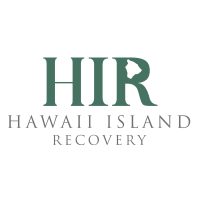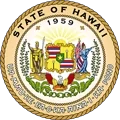
Big Island Substance Abuse Council - Innovations
Drug Rehab Center in Kailua Kona, Hawaii
- Opioid Addiction
- Dual Diagnosis
- Drug Addiction
- Alcoholism
Big Island Substance Abuse Council - Innovations is a substance abuse organization in Kailua Kona, Hawaii that offers residential and outpatient services, referrals to resources, and aftercare and relapse prevention services to help individuals and families affected by substance abuse.
About This Hawaii Facility
Big Island Substance Abuse Council - Innovations is an Addiction Treatment Facility located in Kailua Kona, Hawaii. Established in 1956, this center has a long-standing history of providing effective treatment for individuals suffering from alcoholism, opioid addiction, dual diagnosis, and drug addiction. Big Island Substance Abuse Council - Innovations offers a range of services to help individuals overcome their substance abuse issues. They provide aftercare support to ensure long-term recovery success, as well as outpatient levels of care to cater to the specific needs of each individual. Accredited by SAMHSA and holding a state license, Big Island Substance Abuse Council - Innovations is committed to delivering high-quality addiction treatment.
At Big Island Substance Abuse Council - Innovations, individuals can expect to receive comprehensive and personalized addiction treatment services. This facility offers drug rehab programs designed to address the unique challenges faced by those struggling with addiction. Through a combination of evidence-based therapies, counseling, and support groups, they provide a supportive and nurturing environment for individuals to heal both physically and emotionally. Big Island Substance Abuse Council - Innovations also specializes in dual diagnosis treatment, recognizing the importance of addressing underlying mental health issues that may contribute to addiction. With a focus on holistic care, they prioritize the overall well-being of their clients, providing them with the tools and resources necessary to achieve long-lasting recovery.
Genders
Ages
Modality
Additional
Accreditations
State License
SAMHSA
Conditions and Issues Treated
Opioid abuse has become a national epidemic in the last decade. The US has one of the world’s highest rates of opioid use and abuse, as well as opioid-related deaths. Opioids are classified as Schedule II-IV controlled substances in the US due to their high potential for abuse.
Oxycodone, hydrocodone, methadone, and fentanyl are the most common Opioids and are commonly prescribed to treat pain. Tolerance to opioids develops over time, making life difficult, if not impossible, without them. Opioid users often obtain the drugs illegally. They can be drug dealers, friends, or family members who do not have valid prescriptions.
The desire for a more intense high than prescription opioids can quickly lead to heroin use. Heroin users are more prone to illness and death due to the high risk of overdose.
Many opioid addicts who seek treatment believe that the only way to overcome their addiction is through medical detox and long-term drug addiction rehab. To help patients wean off their addiction and reduce the risk of overdose, medication-assisted therapy (MAT) involves prescribing a replacement opioid. Doctors use MAT in conjunction with other anti-craving medications to help patients maintain recovery. Due to the high risk of relapse, MAT is often combined with individual and group counseling and social support programs.
Alcohol Abuse, Dual Diagnosis (Co-Occuring Disorders), Opioid Addiction
Levels of Care Offered at Big Island Substance Abuse Council - Innovations
This center offers a variety of custom treatment tailored to individual recovery. Currently available are Aftercare Support, Drug Rehab, Outpatient, with additional therapies available as listed below.
An outpatient treatment program is set up to help with alcohol or drug addiction or a co-occurring disorder. The patient must attend the facility for their therapy and other programs but can return home each night.
The frequency of mandatory attendance decreases after much of Big Island Substance Abuse Council - Innovations‘s program is complete.
Outpatient treatment is a recovery approach that allows recovering addicts to live at home while getting rehab for addiction
An outpatient can include day treatments which include attending group sessions one hour per week. A person living in an outpatient environment may be allowed the opportunity to work full time if they choose to and continue studies without interruption from drugs/alcohol.
Outpatient treatment is an option for people who want to maintain their careers and families. Outpatients live at home but attend treatment such as individual counseling, group counseling, or twelve-step meetings during the day.
Aftercare support is vital to the success of someone in drug or alcohol treatment. It involves assisting with entering a sober living home, getting career counseling or educational assistance and even getting the individual lined up with programs like AA and NA. This support helps recovering addicts readjust to normal day-to-day activities and maintain sobriety.
When a person is in drug or alcohol treatment, they have to increase their focus on themselves. They need to learn how to recognize the triggers that cause them to relapse and learn the habits that would benefit them if they were to be sober. This is all part of the growth in recovery, and aftercare is essential to that process.
Therapies & Programs
At Big Island Substance Abuse Council - Innovations , to learn from past mistakes and improve one’s situation, the recovering person meets individually with a therapist. The counselor or therapist will address addiction causes, triggers, mental issues, dual diagnosis, and aftercare plans during this time. This is a very intense and challenging process. Some clients find it easier to open up to someone other than family or friends who understand their struggles with addiction.
Couples therapy sessions are typically used to help couples in recovery from drug addiction work through their issues. These types of sessions can be beneficial for many reasons, including the fact that they add a layer of accountability when both partners in a couple are recovering from addiction.
Therapy can also provide addicts with another effective way to cope with stress and avoid relapse during difficult situations. This type of therapy can help improve communication with their partners, which can strengthen the relationship and prevent future problems that might lead to relapse.
Family therapy is a crucial part of drug treatment and getting sober. It is one of the most effective ways to help addicts stay on the path to long-term sobriety. An addict’s family can play a vital part in helping them to avoid relapse. They can spot the warning signs and help them get back on track.
In group therapy, recovering addicts meet with a therapist and other people in recovery. Some groups are closed, meaning only people who share the same addiction or problem can attend. Others are open to anyone who wants to stop using drugs or drinking alcohol. Group therapy sessions typically focus on one topic each week or month so that recovering addicts can discuss issues they face daily.
Trauma therapy allows people to face and learn from past traumas.
Many people suffer childhood traumas that lead to adult addiction. During treatment at Big Island Substance Abuse Council - Innovations [/type], you can move forward in your recovery and reclaim your sober future! Trauma is a common cause of psychological disorders like Addiction Disorder. It’s common in Addictive Disorders patients because traumatized people have strong emotions or thoughts that lead to addictive behaviors.
Cognitive Behavioral Therapy (CBT) is based on the idea that how we feel, think and act all interact together. It helps people explore their thoughts for problems (or false beliefs) that influence their mood and actions. CBT is very goal-oriented, which means that the therapist and patient work together on a specific problem. In addition to helping a client focus on thoughts that can be changed, CBT also allows them to take an active role in their treatment. Our thoughts determine our feelings and behaviors; our feelings affect our thoughts, and our behaviors change our thoughts and feelings.
Aftercare, Cognitive Behavioral Treatment (CBT), Couples Therapy, Drug Rehab, Family Therapy, Group Therapy, Individual Therapy, Motivational Interviewing, Outpatient Treatment (OP), Residential Long Term (>30 Days), Trauma Therapy
Payment Options Accepted
For specific insurance or payment methods please contact us.
Big Island Substance Abuse Council Associated Centers
Discover treatment facilities under the same provider.
- Big Island Substance Abuse Council - Kailua Kona in Kailua Kona, HI
- Big Island Substance Abuse Council - Ka Wahi Ola Hou in Hilo, HI
- Big Island Substance Abuse Council - Hilo in Hilo, HI
- Big Island Substance Abuse Council - Connections in Hilo, HI
- Big Island Substance Abuse Council - Laukona House in Hilo, HI
Learn More About Big Island Substance Abuse Council Centers
Additional Details
Specifics, location, and helpful extra information.
Kailua Kona, Hawaii 96740 Phone Number(808) 969-9994 Meta DetailsUpdated November 25, 2023
Staff Verified
Patient Reviews
There are no reviews yet. Be the first one to write one.
Kailua Kona, Hawaii Addiction Information
Hawaii has one of the highest rates of drug abuse in the nation. Methamphetamines and marijuana are the most common drugs involved in drug-related crimes in Hawaii. The state loses $500 million every year due to methamphetamine abuse, according to the Hawaii Meth Project. More than 1 million prescriptions for prescription drugs are given out every year.
Treatment in Nearby Cities
- Kailua Kona, HI (1.6 mi.)
- Waikoloa, HI (24.2 mi.)
- Kapolei, HI (179.1 mi.)
- Kahuku, HI (190.9 mi.)
- Kailua, HI (167.5 mi.)
Centers near Big Island Substance Abuse Council - Innovations



The facility name, logo and brand are the property and registered trademarks of Big Island Substance Abuse Council - Innovations, and are being used for identification and informational purposes only. Use of these names, logos and brands shall not imply endorsement. RehabNow.org is not affiliated with or sponsored by Big Island Substance Abuse Council - Innovations.






